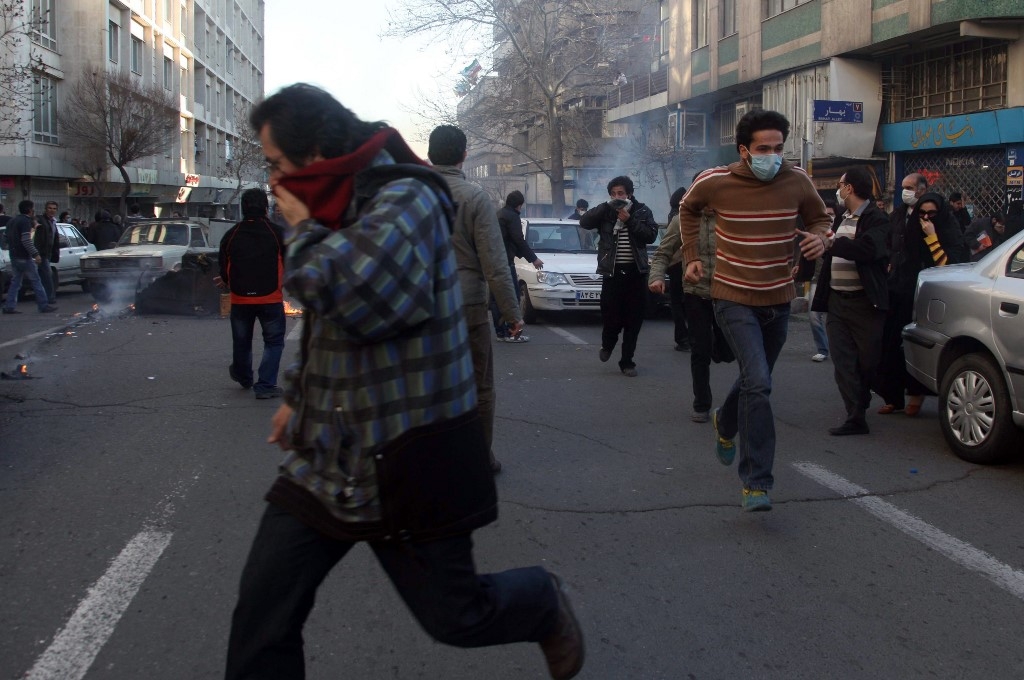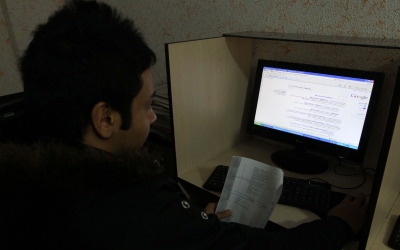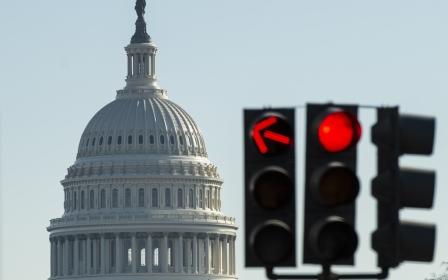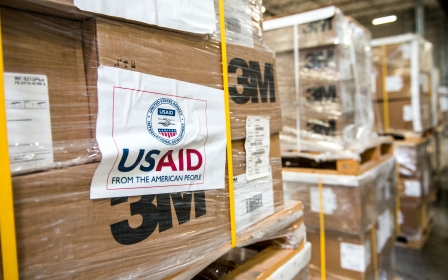US cuts $20m in funding for group helping pro-democracy efforts in Iran

The Trump administration blocked a $20m grant for a pro-democracy organisation operating in Iran, Belarus and Hong Kong, a decision that was denounced for putting activists living under repressive regimes at increased risk.
Michael Pack, a Trump appointee who has been running the US Agency for Global Media (USAGM) since June, froze the congressionally mandated grant for the Open Technology Fund (OTF), a small non-profit that develops technologies to help activists circumvent authoritarian policies such as cyber-surveillance and radio and internet blackouts.
Since the funding freeze, OTF has had to stop all of its operations in Belarus and many of its activities in Iran and Hong Kong, which had been supporting civil society, the Guardian reported on Thursday.
The OTF has also provided daily help with installing and maintaining pro-democracy movements.
The group started in 2012 as a Radio Free Asia pilot programme, but in 2019 Congress allowed the OTF to become an independent nonprofit grantee of the USAGM, with lawmakers allocating the $20m in funding for the fiscal year of 2020.
New MEE newsletter: Jerusalem Dispatch
Sign up to get the latest insights and analysis on Israel-Palestine, alongside Turkey Unpacked and other MEE newsletters
'It's really undermining this core tool that we have for protecting democratic values and protecting those who are seeking their freedoms overseas'
- Karen Kornbluh, OTF board chair
Pack has declined to comment, but his office has suggested that the funding freeze, as well as other changes, was implemented over security concerns, such as OTF staff using Zoom and being careless with computer drives.
Still, the chair of the OTF board, Karen Kornbluh, told the Guardian that such claims were false, stressing that staff do not use Zoom and that they use cloud storage rather than physical drives.
Kornbluh, a former US ambassador, warned that the funding cut will put activists at risk.
"They are more vulnerable," Kornbluh told the Guardian. "It means from a US perspective, it's really undermining this core tool that we have for protecting democratic values and protecting those who are seeking their freedoms overseas."
Kornbluh also noted that the funding cuts will make it harder for some people to access Voice of America (VOA), the USAGM's flagship broadcaster, as well as other USAGM-funded stations, because people will lack the tools to sidestep government censorship.
"We have these agencies and we're kneecapping them," Kornbluh said.
Purging management and freezing funds
While Pack - a political advocate of the far right - had agreed over a month ago to testify before the House Foreign Affairs Committee on Thursday, he cancelled his appearance at the last minute and then ignored a subpoena issued by the committee to compel his attendance.
Pack said he could not attend the committee hearing because he had a USAGM administrative meeting on Thursday. But the chair of the committee, Eliot Engel, suggested Pack was making up excuses, noting that the meeting appeared to have been scheduled long after he had already agreed to appear in Congress.
Since his June appointment, Pack has come under fire for purging all the leadership positions that run the broadcasters under his control, freezing spending, and elevating pro-Trump commentary over news on sites including the VOA.
The firings drew strong bipartisan criticism from lawmakers, who expressed concern that Pack's ties to the Trump administration were turning independently operated organisations under the USAGM into White House mouthpieces.
Pack had also attempted to sack Kornbluh and OTF president Laura Cunningham, but the organisation took the USAGM to court and they were reinstated under a ruling that Pack did not have the legal authority to fire OTF staff.
Pack, a conservative filmmaker and head of a conservative foundation, has said the firings were meant to protect the agency's editorial independence.
'America First, foreigners out'
Testifying before the foreign affairs committee on Thursday, Kornbluh and former USAGM officials described a climate of chaos and authoritarianism at the agency since Pack's appointment.
The officials warned that the new moves threaten the credibility of the VOA and other US broadcasters to the detriment of US national security.
In addition to a purge of management, Pack has also refused to renew visas for foreign journalists working for VOA, triggering dangerous deportations for some.
In some cases new management has gone so far as to advocate for deportations, contacting US immigration and citizenship services to prevent people from obtaining visas through other means and even buying unsolicited tickets home for VOA reporters, the Guardian reported.
"They want to demonstrate that as many people as possible are returning to their countries," one of the affected VOA journalists told the newspaper. "I feel like we serve his purpose of America First, foreigners out, media are bad. I would never expect that from a democracy."
In an interview with the rightwing Federalist blog last month, Pack said the VOA vetting process for staff was weak, warning that being a journalist was "a great cover for a spy".
During Thursday's committee hearing, Ryan Crocker, a former USAGM board member, compared Pack's comments to those of authoritarian regimes.
"To assert that spies from foreign intelligence agencies have infiltrated the establishment - not only does it discredit our reputation for honesty, it puts everyone out there in the field in danger," Crocker said.
Middle East Eye delivers independent and unrivalled coverage and analysis of the Middle East, North Africa and beyond. To learn more about republishing this content and the associated fees, please fill out this form. More about MEE can be found here.






